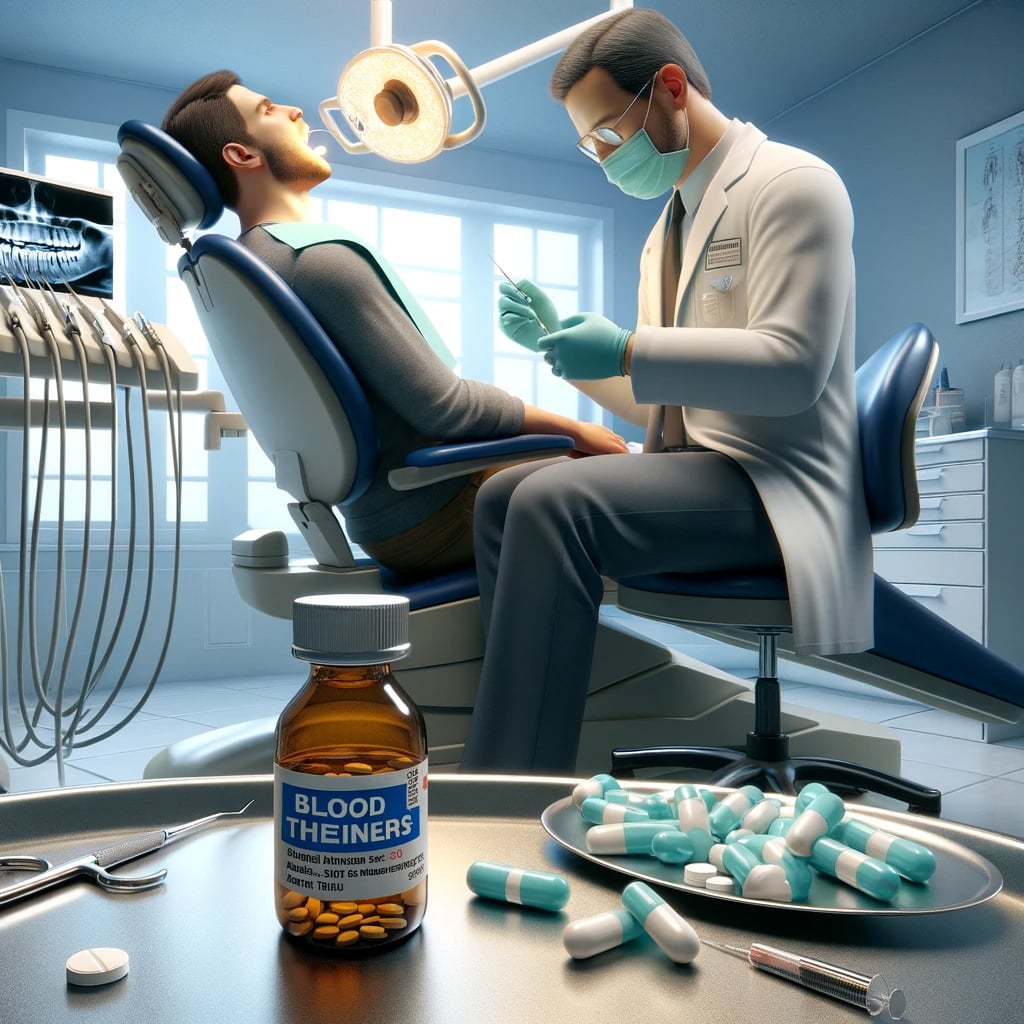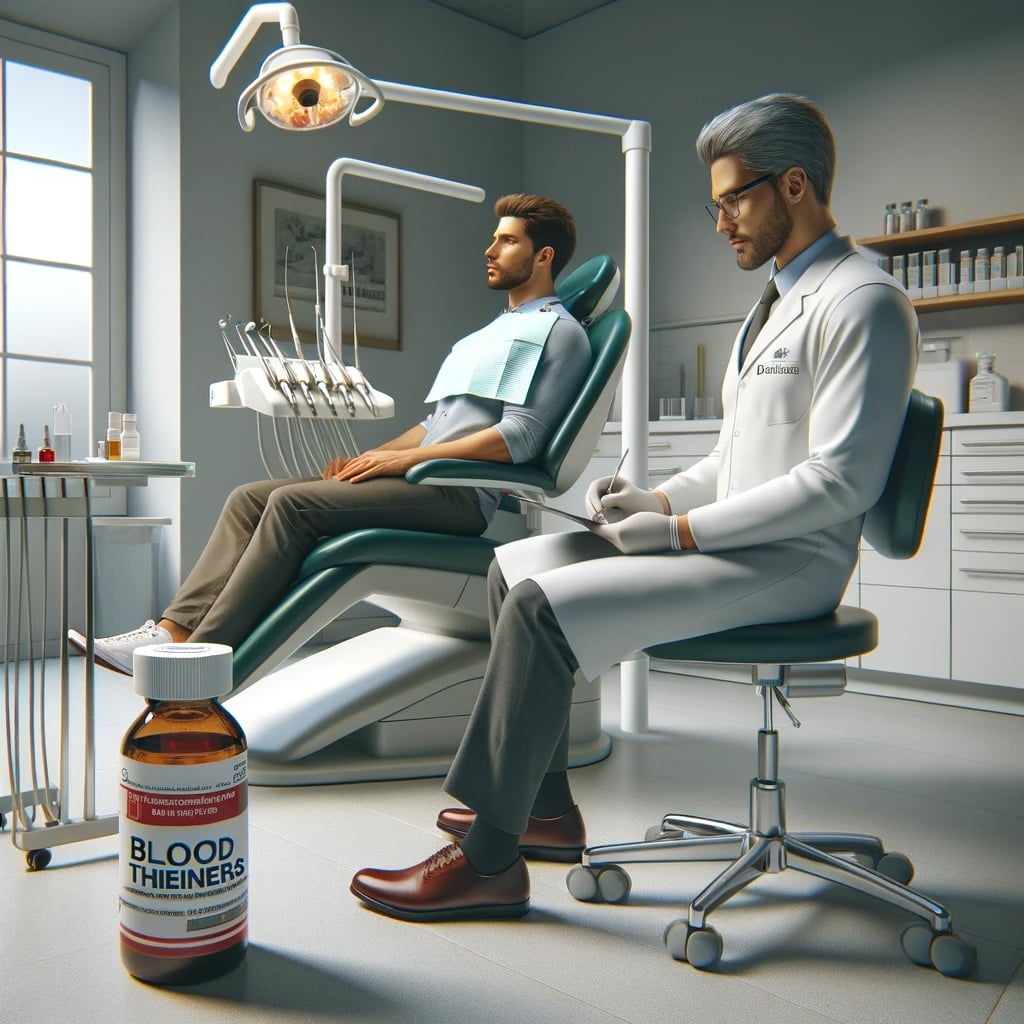Dental care is essential for overall health, but for patients on blood thinners, routine procedures like teeth cleaning can raise concerns.
Understanding the intersection of dental care and blood thinners is crucial for both patient safety and oral health.
The Risks: Blood Thinners and Teeth Cleaning
Increased Bleeding Risk
Patients on blood thinners may experience increased bleeding during or after teeth cleaning.
Balancing Oral Health and Medication
The need for dental care doesn’t diminish for patients on blood thinners. Balancing medication requirements with dental health is essential.
Understanding Blood Thinners
What Are Blood Thinners?
Blood thinners, or anticoagulants, are medications that prevent blood clots. They’re prescribed for various heart conditions, stroke prevention, and other clot-related health issues.
How Do Blood Thinners Affect Dental Care?
These medications affect clotting mechanisms in the body, which can lead to increased bleeding during dental procedures.
Preparing for a Dental Cleaning on Blood Thinners

Consult Your Doctor
Before scheduling a dental cleaning, consult with the healthcare provider who prescribed the blood thinners.
Medication Adjustment
In some cases, doctors may adjust the dosage of blood thinners before dental procedures.
Communicate with Your Dentist
Ensure your dentist is aware of your medication. They can take necessary precautions during the cleaning.
During the Procedure
Special Precautions
Dentists may use specific techniques to minimize bleeding and ensure patient comfort.
Monitoring
Continuous monitoring during the procedure ensures any issues are addressed immediately.
After the Cleaning
Post-Procedure Care
Patients may need to follow specific post-procedure care to manage bleeding and healing.
Follow-Up
Monitoring after the procedure is crucial. Patients should report any excessive or prolonged bleeding to their dentist or doctor.
Safety Measures in Dental Practices

Advanced Techniques
Many dental practices now use advanced techniques that reduce the risk of bleeding during cleanings.
Personalized Care
Dental care plans should be personalized for patients on blood thinners, taking into account individual health needs.
Conclusion
Patients on blood thinners can usually have their teeth cleaned safely. It requires careful coordination between the patient, dentist, and healthcare provider.
Understanding the risks and taking appropriate precautions ensures both effective dental care and patient safety.
Frequently Asked Questions
Can I Stop My Blood Thinners Before a Dental Cleaning?
Stopping blood thinners without medical advice can be dangerous. Always consult your healthcare provider.
Are There Alternatives to Traditional Dental Cleaning?
There are less invasive cleaning methods suitable for patients on blood thinners. Discuss options with your dentist.
What Are the Signs of Excessive Bleeding After Dental Work?
Signs include prolonged bleeding, large clots, or bleeding that resumes after stopping.
